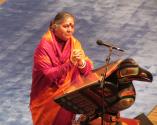I’ve been checking London’s pulse and it’s still bashing away long into the night, particularly hot steamy nights as we had last weekend. That got the sirens going late into early. The plane trees are in full leaf, the sidewalk cafes are heaving and the natives are unveiling the precise pearly shade of the Anglo Saxon post-winter skin, at least the Anglo Saxon natives are. And it’s football madness of course, as the World Cup draws alarmingly near.
But down in the cellars of the Troubadour on alternate Mondays, all is reassuringly still poetry (not to mention accordion music by mega award winning poet C.L. Dalat). This week’s ensemble was Sans Frontieres I, “celebrating the breadth of contemporary European poetry”. First up was Valeria Melchioretto, born in German-speaking Switzerland to Italian-speaking mother and writing compelling poetry in English. Nisia Studzinska was also very fluent, not surprising with her UEA MFA out of the way. Polish born Maria Jastrzebska was raised in Britain and read from her third poetry collection, Syrena, and some new poems as well. Practically a British literary landmark herself, Lotte Kramer has just published her tenth collection, Black Over Red, with Rockingham Press and read us the title poem (about Mark Rothko’s paintings) as well as some of her signature pieces drawing on her German heritage and dramatic pre-war move to London in 1939.
Andras Gerevich was quite a showstopper. Hungarian, he’s lived in five countries and though fluent in English, writes still in Hungarian. He had interesting things to say about translation. He likened it to a favourite recipe (my ears perked right up) which in the hands of a dear friend may produce a similar dish to the one you love, but it will taste different. Likewise he says, although he’s blessed with excellent translators (including no less than George Szirtes) he doesn’t recognise the translations as his own words, so much: the meaning may be right but the prosody is off, for example, and there’s nothing you can do. Start changing the words, he says, and you violate copyright. He remarked as well that because Hungarian is a genderless language, his love poems in his native tongue were androgynous, which had always grieved his gay friends, and he was bemused to discover his poetry had been outed by the English translations, where “he” vs “she” had to be specified.
On Sunday I visited another of my many spiritual homes here, the London Review of Books Bookshop, near the British Museum, where Marilyn Hacker was speaking about form in American poetry. The talk attracted a hearteningly full room despite the £9 ticket price and the perfection of the weather. Hosted by Fiona Sampson, Hacker was flanked and cheered by a good audience of local formalists which included George Szirtes, Mimi Khalvati, and Ruth Fainlight. To me, her most interesting comment was that she preferred form because she never knew where the poem would take her within its constraints: “the collaboration of form and language will take me somewhere freer than free verse, where the conscious mind has to tell you something.” She also observed that “rhyme is fun, but meter is the skeleton” and concluded the afternoon with a short reading from Squares and Courtyards ( a couple of complicated 15 line sonnet-like paragraphs whose form was invented by and results dedicated to Haydn Carruth) and Desesperanto (“Talking to Apollinaire”) .
Afterwards I joined Meli and friends for supper at The Duke, a gastro-pub in Clerkenwell. Meli’s pea pancakes were quite amazing – literally green peas within a pancake, topped with haloumi cheese and sweet roasted tomatoes, garnished with shallot marmelade.










0 Responses to London in the sun